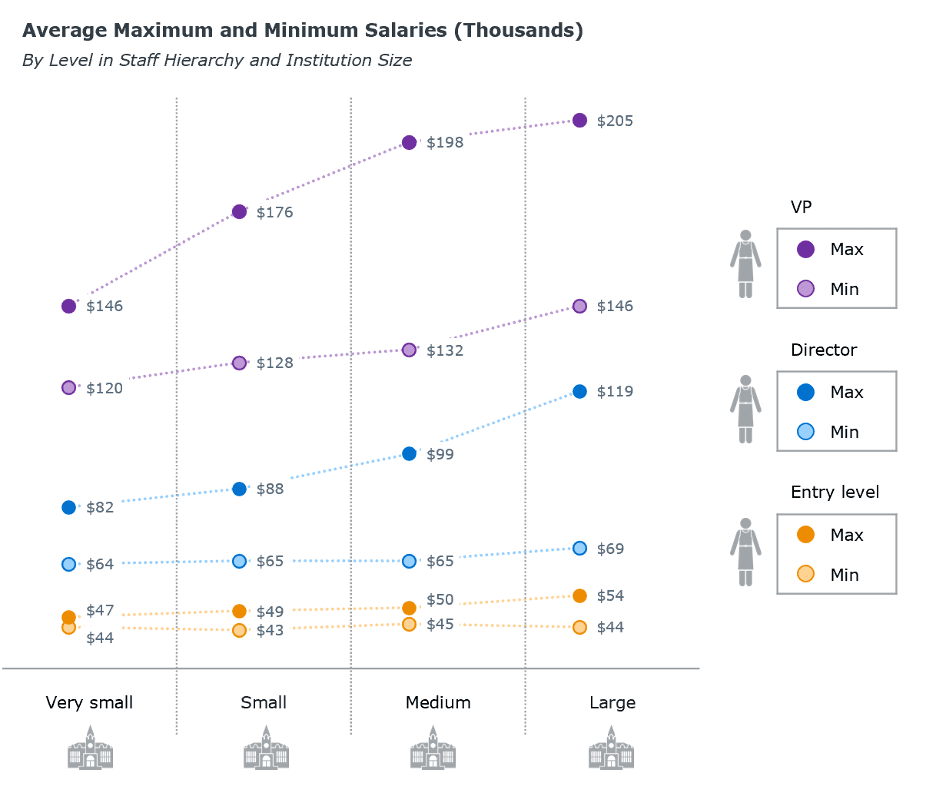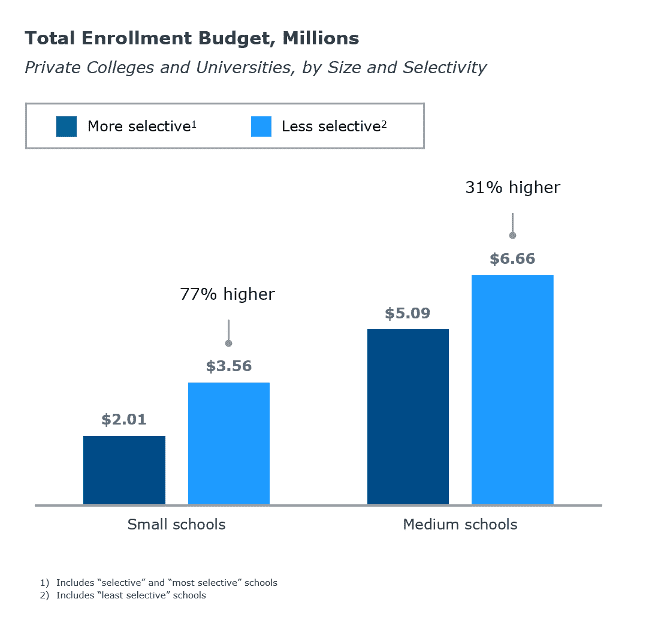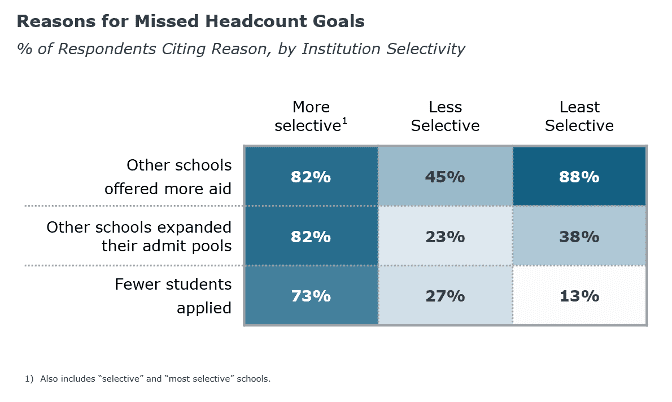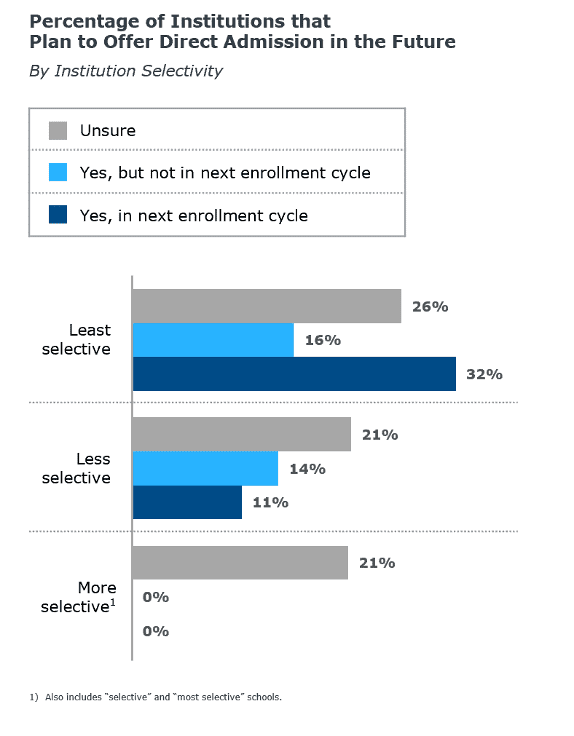How does your enrollment office compare?
In late 2024, we surveyed enrollment leaders at more than 180 institutions around the country to learn about key aspects of their operations and strategy. The information we gleaned provides benchmarks you can use to see how your own resources, priorities, and performance stack up. The survey responses also offer general insights into trends and patterns shaping admissions practice today, which are the focus of this post.
Admissions-staff pay rates
The top end of the salary range for any given position within enrollment offices is uniformly higher at larger institutions, at all levels in the staff hierarchy, with the difference being more pronounced the more senior the position. For example, average maximum pay for entry-level staff at large institutions is 15% higher than the rate at very small institutions; the analogous premium for VP-level positions is 40%.
Average minimum pay shows less consistent variation, especially for more junior positions; for entry-level and director positions it is comparable across institutions of all sizes.

Enrollment budgets
The survey results suggest that enrollment offices at less-selective schools get more financial support than their counterparts at more-selective institutions do. This is certainly the case among small and medium-sized private colleges and universities. Budgets are 77% higher at small, less-selective schools relative to their more-selective peers. The analogous figure for medium-sized institutions is 31%.

While it’s hard to say for sure what accounts for the funding gap, it’s likely a reflection of less selective schools having to work harder—and spend more—to attract students, due to lower market demand. That said, the days may be over when more-selective schools could coast on their reputation; we expect that increasing cross-segment competition (see next section) will push them to boost their investment in recruitment.
Common causes of missed enrollment goals
The top three reasons enrollment leaders gave for missing headcount goals were other schools offering more aid (67%), reduced yield (59%), and fewer students pursuing college (57%).
More-selective schools were more likely to cite a reduction in the number of applicants as a reason for missing their goals. This is consistent with findings from other EAB research showing that reductions in the rate of college-going have been greatest among more affluent students (who are over-represented at more-selective schools.)

The first two reasons listed in the table above—other schools offering more aid and other schools expanding their admit pools—were cited least often by schools in the “less selective” category. One possible interpretation is that less-selective schools have been using aggressive aid awarding to win market share (or defend existing share) from both more and least selective schools.
Direct admission
A large number of schools, especially those outside of the selective category, have adopted direct admission—a practice whereby students are offered admission before applying.

The fact that almost a third of more-selective institutions have adopted direct admission is noteworthy. Some enrollment leaders worry that direct admission may be viewed negatively by students who prize exclusivity. The numbers here suggest that admissions teams at many selective schools don’t share that concern.
Also worth noting is the large number of schools that plan to implement direct admission in the next year or two, as well as the sizable group who are not necessarily opposed to it (those answering “unsure” in the chart below.)

Get the full report
The information I’ve shared above is just a fraction of what’s available in our full report. In it you’ll find data on more than 25 topics, from staffing levels and pay rates to reporting structures and outsourcing practices, for both admissions and financial aid. Take a look, and let me know what you think.

More Blogs

What Blockbuster can teach enrollment leaders about AI-powered college search

Students are engaging earlier. Enrollment strategies should follow.
